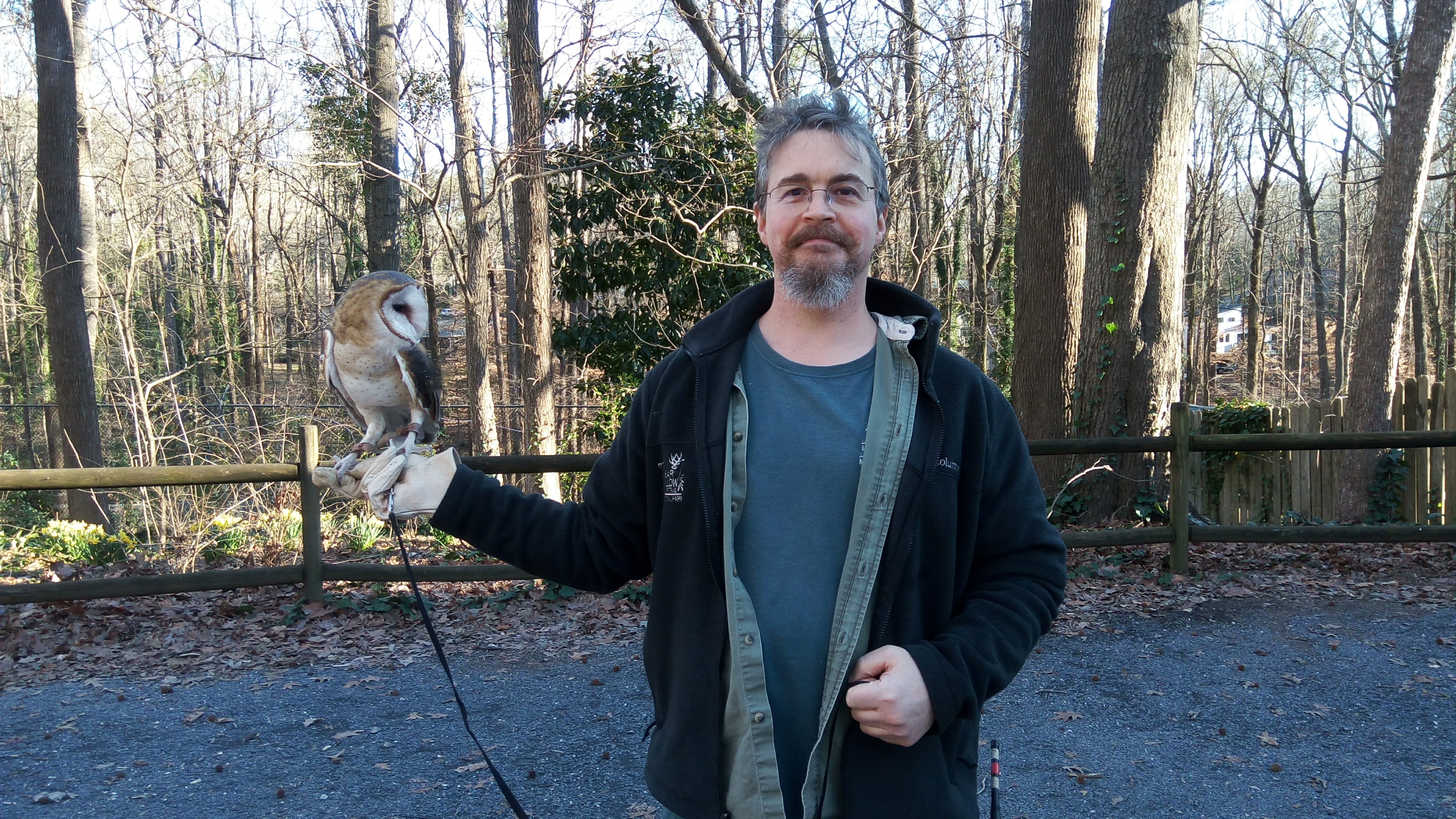Volunteer
Volunteering at Bear Hollow comes in four general flavors. Which flavor is right for you?
General Volunteers
During special events, we often need people to help with crowd control, to dig holes, put up or dismantle event tables, chairs and tents… Holiday decorations and tabling are also important needs. These are things that happen for special occasions and don’t require any particular knowledge about animals, their behavior or care. Volunteers of this type are occasional, and often come from fraternities, sororities, societies, choral or church groups. However, you don’t have to be a member of any particular group if you see an event you would like to volunteer for on our calendar. There is no set schedule for general volunteers, but when we have need, your help is greatly appreciated.
Hosting, Docents, Education Interns
We need people to help watch the reptile house when it’s open. We like to have it open on Saturdays, but it’s easier for that to happen when we have a volunteer just for that purpose. Most educational volunteers attempt to participate at least once or twice a month in various events or programs at Bear Hollow.
A Host is a volunteer that doesn’t necessarily know very much about animals, but knows enough to make sure visitors respect the animals behind the glass. Hosts can go through a 9-week program to become a Docent.
A Docent has learned some simple facts about animals, has learned about how to interpret those facts in a fun and informative manner and can handle some of the animals as approved by staff. When volunteering at events, or in the reptile house, docents may be allowed to present an animal for our event attendees. Anyone can learn to be a docent. Just sign up for the classes when they become available. Attendance is limited, due to classroom size.
An Education Intern is someone who is takes classes at an accredited college or university in animal husbandry, forest husbandry, ecology, veterinary, or widely related field, and seeks an in-depth internship on how to be a better interpretive native wildlife guide. Classes often require from 120 to 200 hours to accrue credit for the course. Internships must be approved by Bear Hollow’s Education Specialilst Jen Benoit and must be approved by your professor as well. This is for students who are seriously considering a future in animal education.
Animal Care and Animal Care Internships
Animal Care Volunteers are serious about volunteering. We ask for a six-month commitment, once a week for between 90 minutes and three hours, rain or shine, warm or cold. In the same way you would not leave your pets for days while we’re away without someone there to tend them, we depend on you to be there for our animals. With animal care, you learn close up about behaviors of native animals, including what they eat and what it takes to clean up after them. You might even be able to attend a visit from the vets.
Animal Care Interns, like Education Interns, are people who are taking classes at an accredited college or university. Again, classes often require from 120 to 200 hours to accrue credit for the course. Internships must be approved by Bear Hollow’s Zoo Coordinator Clint Murphy and must be approved by your professor as well. This is for students who are seriously considering a future in animal husbandry, forest husbandry or veterinary care.
Animal Training
Before you can even become an animal training volunteer, you must have spent at least six months as an animal care intern, proving to our staff that you are dedicated to learning more about animals. It’s important not only that you learn more about specific animals, but also that some animals get to know you better. For example, most raptors take months for each specific trainer to gain their trust.
We use positive reinforcement in the form of treats to reward animals for the behaviors we encourage. You will have to go through considerable training yourself to learn how to properly interact with our animals.
A six-month stint in animal care prior to training will give you an idea of the metal you’re made of, plus a better idea of what to expect from the animals you care for. Again we require a six-month commitment, once a week for a period of 90 minutes to three hours, rain or shine, warm or cold, from people who wish to do a stint with Animal Training, but frankly, gaining an animal’s trust can take longer than six months. But the results can be truly rewarding. Are you up for a long-term commitment training with a native wild animal?
These are the flavors of volunteering available. We hope you’ll email BearHollowZoo@gmail.com if you’re interested!

